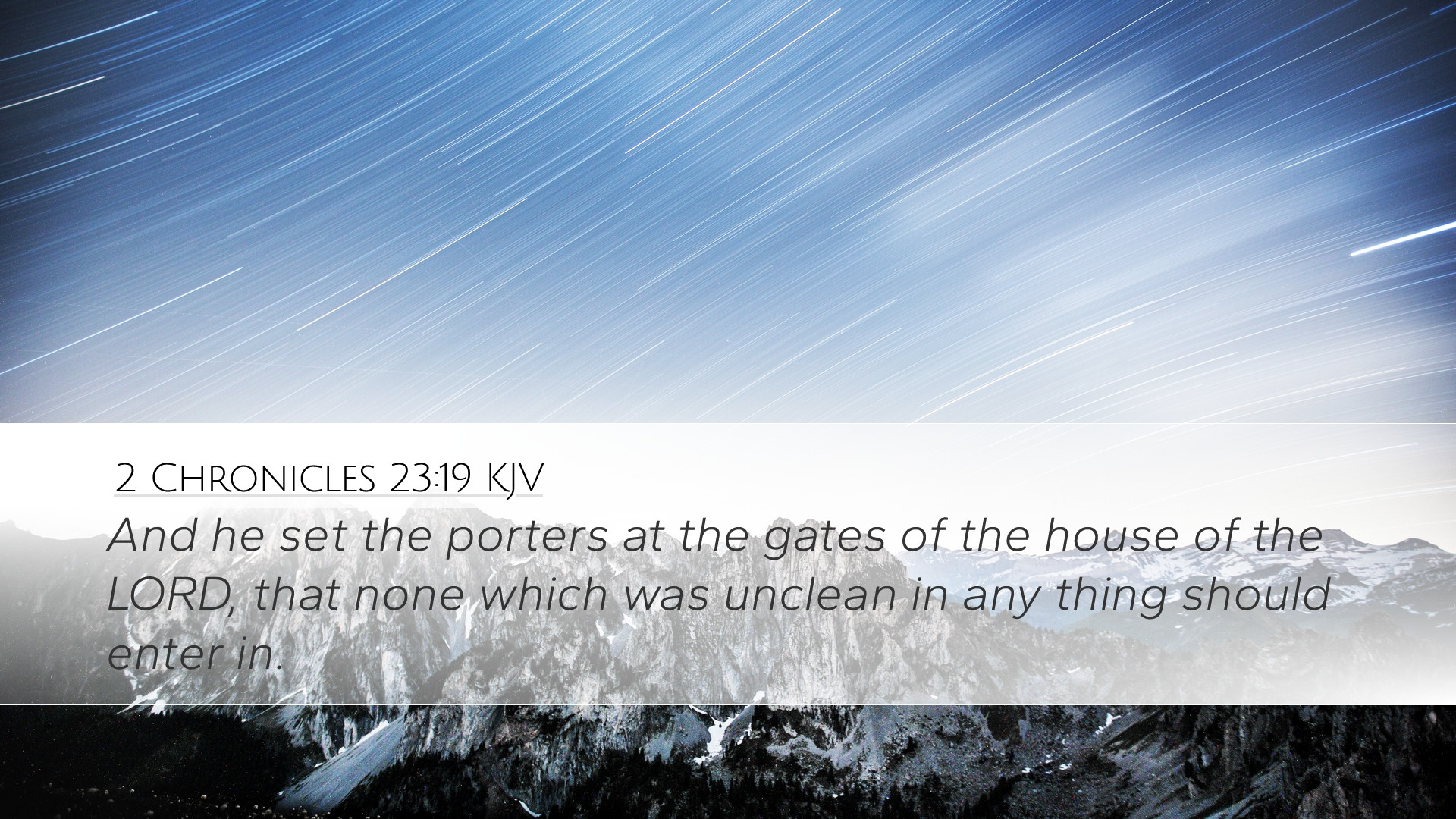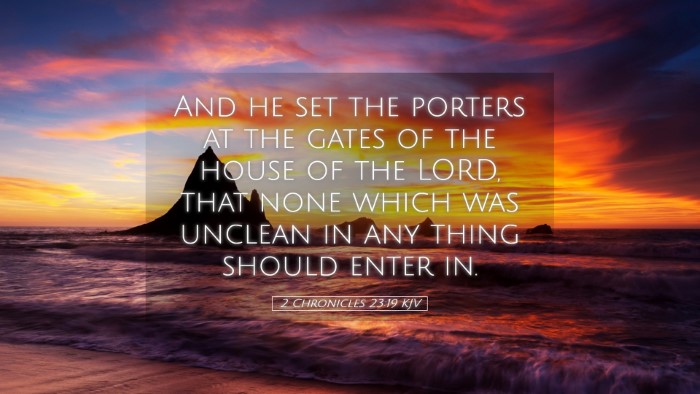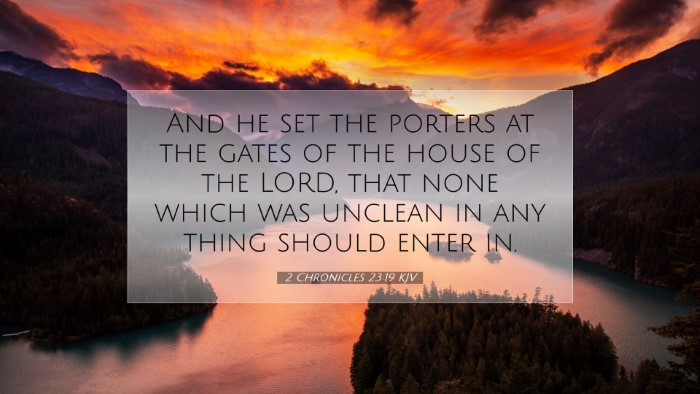Commentary on 2 Chronicles 23:19
Verse Reference: 2 Chronicles 23:19 - "And he set the porters at the gates of the house of the LORD, that none which was unclean in any thing should enter in."
Introduction
This verse is situated in the context of the restoration of proper worship and order in the Temple after the usurpation and subsequent reign of Athaliah. The actions taken in this chapter highlight the importance of sanctity and order in worship, as emphasized throughout the Old Testament.
Contextual Analysis
Following the overthrow of Athaliah, Jehoiada the priest instituted reforms to restore worship to the covenant God of Israel. The appointment of porters at the gates was an essential part of these reforms, aimed at maintaining the purity and sanctity of the worship space.
Significance of the Porters
The porters, or gatekeepers, served a critical role in safeguarding the holiness of the Temple. According to Matthew Henry, these men were charged not only with the physical security of the Temple but also with guarding the spiritual integrity of worship by ensuring that only the clean and pure could enter.
- Duty of the Porters: They were to allow entry to those who adhered to the ceremonial laws of cleanliness, thus symbolically representing the heart condition required for approaching God.
- Symbol of Spiritual Vigilance: The porters represent the need for vigilance in the spiritual life of the community—watching over who enters into communion with God.
Theological Implications
From a theological standpoint, this verse underscores God’s holiness and the necessity of purification before engaging in worship. Albert Barnes noted that this reflects an essential principle in approaching God: that one must come with a pure heart.
Cleanliness and Approachability to God
The instructions given also demonstrate God’s desire for His people to be set apart and sanctified. Uncleanliness in worship could result in judgment, exemplifying the seriousness with which the Israelites were to treat the holiness of their God. According to Adam Clarke, the demeanor of the worshipper, as well as their actual physical state, were both deemed essential to acceptable worship.
- Spiritual Cleanliness: Maintains that genuine heart repentance coupled with adherence to divine regulations was essential for valid participation in worship.
- Implications for Today: This passage serves as a reminder for contemporary believers regarding the need for purity and righteousness in worship and life, thus emphasizing the call to holiness.
Practical Applications
The guidelines set forth in this verse carry several practical implications for modern believers, particularly for pastors and lay leaders:
- Church Leadership: Just as Jehoiada established order and appropriateness in worship, church leaders today ought to cultivate an atmosphere conducive to pure and authentic worship.
- Congregational Integrity: The requirement for cleanliness teaches that the congregation is called to uphold godly standards in personal and communal conduct, echoing Paul’s exhortation in Ephesians 5:27.
- Access to God: While we believe that Christ has made a way for us to approach God freely, we must not take for granted the need for ongoing cleansing and repentance (1 John 1:9).
Conclusion
In conclusion, 2 Chronicles 23:19 serves a vital role within its historical context, illustrating principles of holiness, the necessity for purity, and the protective measures necessary in worship settings. The insights drawn from public domain commentaries like those of Matthew Henry, Albert Barnes, and Adam Clarke emphasize the importance of these principles for both ancient Israel and the modern Church. Pastors, theologians, and students of the Word are invited to reflect deeply upon the implications of this verse as they strive to maintain a genuine relationship with God and promote holiness among believers.


